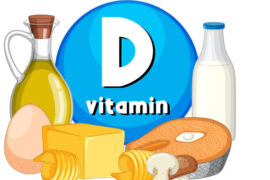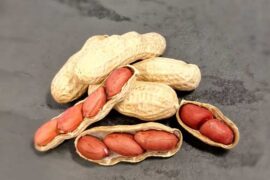Maintaining strong bones is crucial for overall health, as bones provide structure, protect organs, and store calcium. Proper nutrition, particularly the intake of calcium and vitamin D, plays a significant role in promoting bone density and strength. Understanding the importance of these nutrients and their food sources can help individuals maintain healthier bones.
The Role of Calcium
Calcium is the most abundant mineral in the body and is vital for several functions. It serves as the primary building block for bones and teeth, ensuring their structure and density. Adequate calcium intake helps maintain bone density, reducing the risk of osteoporosis, especially in older adults. Additionally, calcium is essential for muscle function and the transmission of nerve impulses. To support strong bones, individuals should include calcium-rich foods in their diets.
Food Sources of Calcium
To meet calcium needs, individuals can consume various foods, including:
- Dairy Products: Milk, yogurt, and cheese are excellent sources of calcium.
- Leafy Green Vegetables: Kale, broccoli, and collard greens provide significant calcium content.
- Fortified Foods: Many plant-based milks, orange juices, and cereals are fortified with calcium.
- Fish: Fatty fish such as sardines and canned salmon (with bones) are good sources.
- Legumes and Nuts: Almonds and chickpeas also contribute to calcium intake.
The Importance of Vitamin D
Vitamin D is essential for the absorption of calcium and plays a crucial role in maintaining bone health. It enhances the intestines’ ability to absorb calcium from the diet, ensuring that the body can utilize it effectively. Additionally, vitamin D is involved in bone remodeling, helping to balance the resorption of old bone and the formation of new bone. Sufficient vitamin D levels are associated with a reduced risk of fractures and falls, particularly in older adults.
Food Sources of Vitamin D
To obtain adequate vitamin D, individuals should consider including the following foods in their diets:
- Fatty Fish: Salmon, mackerel, and tuna are rich in vitamin D.
- Egg Yolks: Eggs are a good source, particularly the yolk.
- Fortified Foods: Many dairy products, plant-based milks, and cereals are fortified with vitamin D.
- Mushrooms: Certain varieties, such as shiitake and maitake, can provide vitamin D when exposed to UV light.
Additional Tips for Bone Health
In addition to a diet rich in calcium and vitamin D, individuals can support bone health by spending time outdoors to synthesize vitamin D from sunlight. Engaging in weight-bearing exercises like walking, running, and strength training can also help maintain bone density. Furthermore, it’s important to limit caffeine and sodium intake, as excessive amounts can lead to calcium loss. A balanced diet that includes other essential nutrients like protein, magnesium, phosphorus, and vitamin K will further promote healthy bones.
Prioritizing a diet rich in calcium and vitamin D, along with maintaining an active lifestyle, is key to promoting strong bones. By incorporating a variety of nutrient-dense foods and engaging in regular physical activity, individuals can support their bone health and reduce the risk of osteoporosis and fractures as they age.
Disclaimer:
The information contained in this article is for educational and informational purposes only and is not intended as a health advice. We would ask you to consult a qualified professional or medical expert to gain additional knowledge before you choose to consume any product or perform any exercise.







